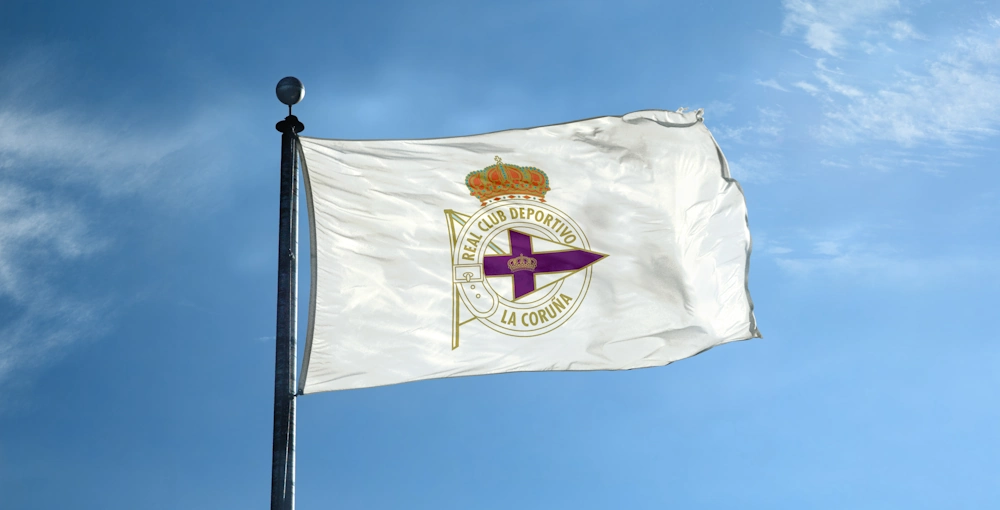El Super Depor
For a young football fan, the name of Deportivo La Coruña or the nickname of Super Depor may not mean anything, however for those a little older, it is a memory of a historic team that accomplished important feats and that came to be considered an opponent that competes head-to-head with Real Madrid and Barcelona in Spain and against the big clubs in Europe. This is the story of the "Super Depor".
Lendoiro
Augusto Joaquín Cesar Lendoiro was born in Corcubion, La Coruña, and for much of his life he combined his studies, more specifically in Law, with his love for football. From the age of 15, when the vast majority of young people play football, Lendoiro presided over a small amateur football club called Ural. In 1988, at the age of 43, he was elected president of the Real Club Deportivo La Coruña, which at that time was in a complicated situation, fighting for the last places in the Second Division and trying to avoid relegation and also in a very difficult economic situation with many accumulated debts.Despite this, Lendoiro presided over the club in a way that allowed it to have progressive growth in all areas that led to the best historical period of the club and to him becoming the best president in the history of Deportivo La Coruña. His management won a league, two Copas del Rey and three Spanish Super Cups and he has been the only president who has qualified the club for European competitions.
Rise of Super Depor
Since 1988, when Lendoiro took over, the club had been in a stabilization process in order to become competitive in the Second Division, with a view to seeking promotion, something it would achieve in the 1990-91 season. The following year, now playing in La Liga, the objective was to maintain that level, something that they would also accomplish at the last minute by beating Betis in the relegation play-offs.In the 1992-93 season, Law 10/1990 came into force, which forced all sports institutions that had their numbers in the red in the last four seasons to become Sports Joint Stock Companies (SAD), which forced them to change the way clubs are managed. That same season two Brazilians arrived who would radically change the history of the club; Bebeto and Mauro Silva. The former was the League's top scorer in that first season in Spain while the latter would be the basis of the team's midfield for more than a decade.
That year, the team finished third in La Liga, giving clear signs of the club's transformation and qualifying for the first time in its history for a UEFA competition, in this case, the UEFA Cup. In 1993-94, Deportivo was in first position in the league table since matchday 14 and that famous penalty missed by Miroslav Djukic on the last matchday prevented it from becoming champion that year. Even so, Super Depor was already a force to be reckoned with in Spain, now competing face to face with the big clubs.
Finally, champions
The following season, the runner-up finish would be repeated, although the first major title in the club's history would arrive, the Copa del Rey, beating Valencia in the final of the competition. It should be noted that this was a match that was suspended in the 79th minute due to heavy rain with a tie 1-1 on the score and continued 3 days later, where Alfredo's goal in the 81st minute was enough to give the trophy to the Galician club. At the beginning of the 1995-96 season, they would win the Spanish Super Cup, beating Valdano's Real Madrid 5-1 on aggregate.The team was already established as a strong rival in Spain, although the true culmination would come in the 1999-2000 season, when in one of the most even editions in the recent history of League, Deportivo La Coruña became champion for the first time in history, led by Javier Irureta on the bench and Roy Makaay on top, who scored 22 goals. That season, they would also reach the quarterfinals of the UEFA Cup, where they would be eliminated by Arsene Wenger's Arsenal.
On March 6, 2002, the final of the Copa del Rey was played at the Santiago Bernabeu stadium, precisely with Real Madrid celebrating its centenary, with stars like Zidane, Figo, Raúl and Roberto Carlos. Loc Blancos faced Deportivo La Coruña, who seemed to be just a guest at the Real Madrid party, although nothing could be further from the truth. Super Depor won 2-1 with goals from Sergio González and Diego Tristán and took the cup from the club that was chaired by Florentino Pérez. That match would later be known as "El Centenariazo."
In 2003-04, Super Depor made history, this time in Europe, by achieving its best performance in the UEFA Champions League by reaching the semi-finals, where it would fall to the eventual champion, José Mourinho's FC Porto. To reach that stage, Deportivo faced AC Milan in the quarterfinals. The Italian team was the current champion and had won the first leg 4-1 at San Siro, however, against all odds, Super Depor would win at Riazor 4-0 in the second leg, making one of the best comebacks of the history of the competition.
During the period between 2005 and 2011, the club suffered the large expenses of previous seasons and debts began to be a big problem that seriously affected the club, to the point of not being able to avoid relegation in 2010-11. Although they would return to the first tier, the damage had already been done and the club continued to decline in the following years, even leading to Lendoiro not being re-elected president after 25 years in office. The club came close to being relegated to the Second Federation (fourth tier of Spanish football today), truly marking that the glory days of Super Depor were over.
